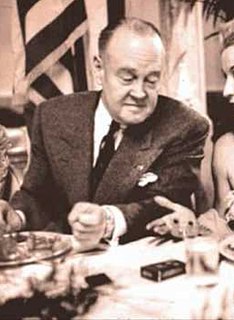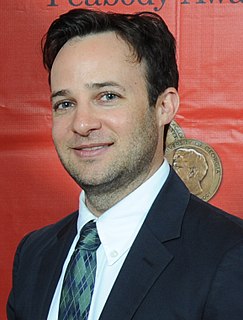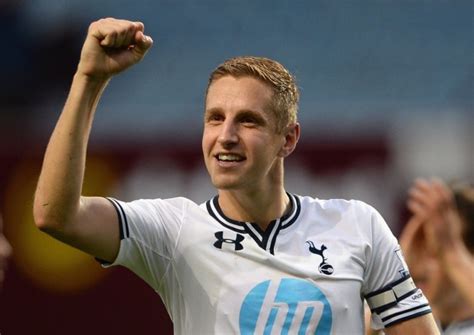A Quote by Letitia James
For all the manufactured 'Republican versus Democrat' drama that dominates today's cable news and political rhetoric, the most striking feature of our present-day democracy is not partisan divide - it's a corrupt system that protects incumbents from the consequences that real democracy brings.
Related Quotes
Our real battlefield today is Asia and our real battle is the one between democracy and communism. . . . We have to prove to the world and particularly to downtrodden areas of the world which are the natural prey to the principles of communist economics that democracy really brings about happier and better conditions for the people as a whole.
I just don't need cable news. There's nothing that happens on cable news that I don't already know. I'm talking about just the acquisition of information, learning things. What is on cable TV is not that. Cable news isn't news. What is happening on cable news right now is a political assassination of not just Donald Trump, but of ideas and cultural mores that I believe in.
The protesters have called into question whether there is a real democracy. Real democracy is more than the right to vote once every two or four years. The choices have to be meaningful. But increasingly, and especially in the US, it seems that the political system is more akin to "one dollar one vote" than to "one person one vote". Rather than correcting the market failures, the political system was reinforcing them.
Democracy, in the United States rhetoric refers to a system of governance in which elite elements based in the business community control the state by virtue of their dominance of the private society, while the population observes quietly. So understood, democracy is a system of elite decision and public ratification, as in the United States itself. Correspondingly, popular involvement in the formation of public policy is considered a serious threat. It is not a step towards democracy; rather it constitutes a 'crisis of democracy' that must be overcome.
I am a Mexican. The United States lived seventy-five years with the one party system in Mexico - the PRI - without batting an eyelid, never demanding democracy of Mexico. Democracy came because Mexicans fought for democracy and made a democracy out of our history, our possibilities, our perspectives. Democracy is not something that can be exported like Coca-Cola. It has to be bred from the inside, according to the culture, the conditions of each country.
The honest and serious student of American history will recall that our Founding Fathers managed to write both the Declaration of Independence and the Constitution without using the term 'democracy' even once. No part of any of the existing state Constitutions contains any reference to the word. [The men] who were most influential in the institution and formulation of our government refer to 'democracy' only to distinguish it sharply from the republican form of our American Constitutional system.
Whether we're talking about what the role of the government is, what you think of the United Nations, political leaders or how to respond to [Hurricane] Katrina and whether it had anything to do with race, across a wide variety of issues we see differences between mainstream black and white American opinion that dwarfs anything in American public opinion, period. Democrat versus Republican, men versus women, conservative versus liberal, the black/white divide is the biggest, one of the biggest in the world, and certainly the largest gap in the United States.
If you have reservations about the system and want to change it, the democratic argument goes, do so within the system: put yourself forward as a candidate for political office, subject yourself to the scrutiny and the vote of fellow citizens. Democracy does not allow for politics outside the democratic system. In this sense, democracy is totalitarian.
The great goal of the backlash is to nurture a cultural class war, and the first step in doing so, as we have seen, is to deny the economic basis of social class. After all, you can hardly deride liberals as society's "elite" or present the GOP as the party of the common man if you acknowledge the existence of the corporate world - the power that creates the nation's real elite, that dominates its real class system, and that wields the Republican Party as its personal political sidearm.




































